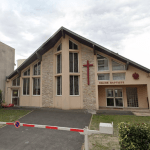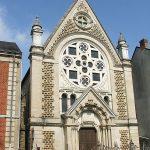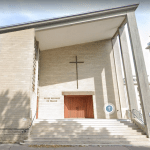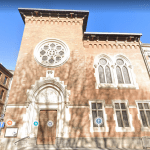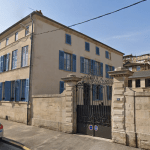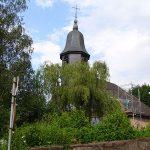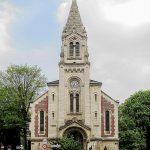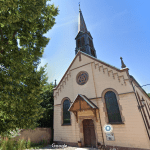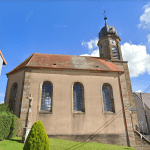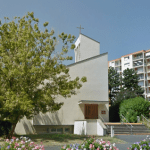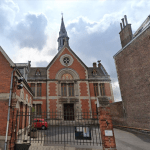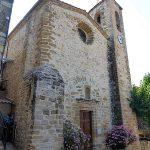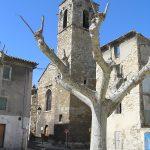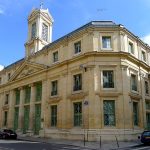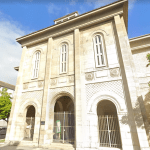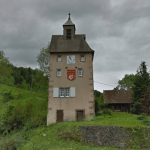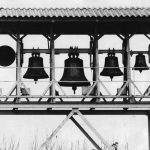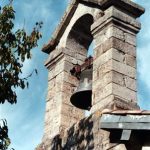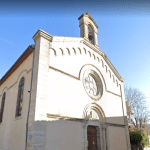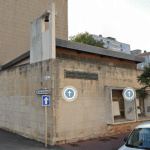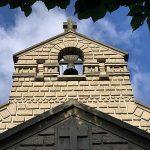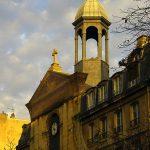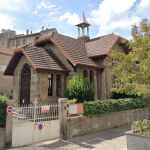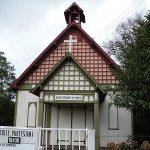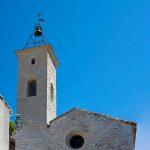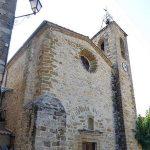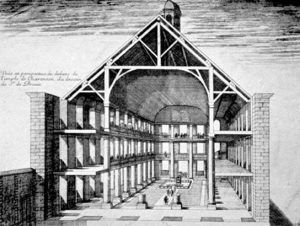Lack of a bell tower
Evangelical Churches do not have a bell tower, i.e. the Baptist Church in Antony near Paris, or the one on rue de la Roquette in Paris or even Christ Church in Paris.
Among churches without a bell tower, buildings designed for worshipping can be found, such as the temple in Le Mans (1900), or in Caen (1959), but also buildings or rooms initially not designed for worshipping, such as the temple in Bar-le-Duc (1862) and the one in Toulouse – a former Royal Treasury turned into a temple in 1911.
Small bell towers
Many temples have a small bell tower, temples in Echery (15th-16th centuries) and Le Havre (built in 1857, bombed in 1940 and renovated in 1953).
The temple of the Holy Spirit in Paris is a special case, as it was initially built without a bell tower, and the present bell tower was added later on.
Bell towers without bells
On some pictures one can notice that there is no bell in the bell tower, as in the temples in Annemasse (1893); in Orange (16th century); in Dinard (1914) and in the Billettes Church in Paris.
Sometimes the bell, instead of being set in the bell tower is over it as in the temple in Collorgues, a 15th century Catholic church, turned into a temple in the early 19th century and the temple in Nages, a former Romanesque Church turned into a Protestant temple in the 19th century.
Bell-gables also called comb-shaped bell towers
Some can be found all over France, for instance the temples in Cherbourg (1964) and in Issy-les-Moulineaux (1939); Church in Taizé (1939) and especially in Southern France: temples in Saint-Affrique (1802), in Uzès, in Collet-de-Dèze
Bell towers without bells
On some pictures one can notice that there is no bell in the bell tower, as in the temples in Annemasse (1893); in Orange (16th century); in Dinard (1914) and in the Billettes Church in Paris.
Sometimes the bell, instead of being set in the bell tower is over it as in the temple in Collorgues, a 15th century Catholic church, turned into a temple in the early 19th century and the temple in Nages, a former Romanesque Church turned into a Protestant temple in the 19th century.
Bell ringing
Bells are meant to call believers to worship.
According to the Law of 1905 on the separation of Church and State, the mayor was entitled to regulate the ringing of bells.
In fact bells are rarely rung in Protestant temples, as evidenced by the many temples without a bell tower, or with a bell tower without bells.



